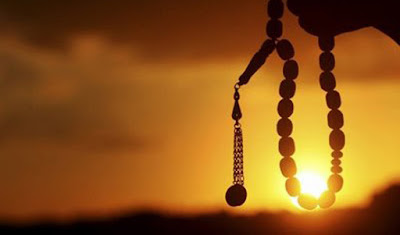Second Pillar of Islam - To perform prayer 5 times a day
3/4/2017, 6 Rejab 1438H
Prayer 5 times a day
We came to the Prophet (ﷺ) and stayed with him for twenty days and nights. We were all young and of about the same age. The Prophet (ﷺ) was very kind and merciful. When he realized our longing for our families, he asked about our homes and the people there and we told him. Then he asked us to go back to our families and stay with them and teach them (the religion) and to order them to do good things. He also mentioned some other things which I have (remembered or [??] ) forgotten. The Prophet (ﷺ) then added, "Pray as you have seen me praying and when it is the time for the prayer one of you should pronounce the Adhan and the oldest of you should lead the prayer. [Sahih al-Bukhari: 631]
Surat Al-`Ankabūt (The Spider), Chapter 29. Verse 45:
"Recite, [O Muhammad], what has been revealed to you of the Book and establish prayer. Indeed, prayer prohibits immorality and wrongdoing, and the remembrance of Allah is greater. And Allah knows that which you do." (Quran 29:45)
Muslims worship Allah by performing prayer and other good deeds. We follow the steps on how Prophet Muhammad performed the prayer during his life, because he is the perfect example of mankind and guaranteed paradise by Allah. Before we perform the prayer, we need to take ablution (wuduk)

Steps for tayammum (if you are ill or do not find water):
Surat Al-Baqarah (The Cow), Chapter 2:



We do not worship the black cube (Kaabah) at Masjidil al-Haram, but we worship Allah directly. The Kaabah has been built by Prophet Abraham and his son, Prophet Ishmael, as a sign of unity and direction for prayer. There is no tomb inside the Kaabah.

We determine the prayer times by depending on the sun position and calculation of 'almanak Falaq Syarie' for each places we are located. When the time for prayer comes, you will listen to the adhan (call for prayer) from the nearest mosque (if any). You can view the prayer times at your place from this website link: Islamic Finder.
Surat Al-Mā'idah (The Table Spread), chapter 5, Verse 6:
"O you who have believed, when you rise to [perform] prayer, wash your faces and your forearms to the elbows and wipe over your heads and wash your feet to the ankles. And if you are in a state of janabah, then purify yourselves. But if you are ill or on a journey or one of you comes from the place of relieving himself or you have contacted women and do not find water, then seek clean earth and wipe over your faces and hands with it. Allah does not intend to make difficulty for you, but He intends to purify you and complete His favor upon you that you may be grateful." (Quran 5:6)
Steps for ablution (Wuduk):
- Wash your faces,
- Wash your forearms to the elbows,
- Wipe over your heads,
- Wash your feet to the ankles
Steps for tayammum (if you are ill or do not find water):
- Seek clean earth,
- Wipe over your faces,
- Wipe over your hands with the clean earth.
Surat Al-Baqarah (The Cow), Chapter 2:
"We have certainly seen the turning of your face, [O Muhammad], toward the heaven, and We will surely turn you to a qiblah with which you will be pleased. So turn your face toward al-Masjid al-Haram. And wherever you [believers] are, turn your faces toward it [in prayer]. Indeed, those who have been given the Scripture well know that it is the truth from their Lord. And Allah is not unaware of what they do." (Quran 2:144)
"So from wherever you go out [for prayer, O Muhammad] turn your face toward al- Masjid al-Haram, and indeed, it is the truth from your Lord. And Allah is not unaware of what you do." (Quran 2:149)
"And from wherever you go out [for prayer], turn your face toward al-Masjid al-Haram. And wherever you [believers] may be, turn your faces toward it in order that the people will not have any argument against you, except for those of them who commit wrong; so fear them not but fear Me. And [it is] so I may complete My favor upon you and that you may be guided." (Quran 2:150)
We do not worship the black cube (Kaabah) at Masjidil al-Haram, but we worship Allah directly. The Kaabah has been built by Prophet Abraham and his son, Prophet Ishmael, as a sign of unity and direction for prayer. There is no tomb inside the Kaabah.
Surat Al-Baqarah (The Cow), Chapter 2, Verse 125:
"And [mention] when We made the House a place of return for the people and [a place of] security. And take, [O believers], from the standing place of Abraham a place of prayer. And We charged Abraham and Ishmael, [saying], "Purify My House for those who perform Tawaf and those who are staying [there] for worship and those who bow and prostrate [in prayer]." (Quran 2:125)
We determine the prayer times by depending on the sun position and calculation of 'almanak Falaq Syarie' for each places we are located. When the time for prayer comes, you will listen to the adhan (call for prayer) from the nearest mosque (if any). You can view the prayer times at your place from this website link: Islamic Finder.
 |
| Sun position for prayer times in each country |
5 times obligatory daily prayers:
- Fajr (Subuh)
- Zuhr
- Asr
- Maghrib
- Isha'
"On the Night of Isra, fifty prayers were made obligatory upon the Prophet. Then it was decreased until it was made five. Then it was called out: 'O Muhammad! Indeed My Word does not change; these five prayers will be recorded for you as fifty.'"
| Grade | : Sahih (Darussalam) |
| Reference | : Jami` at-Tirmidhi 213 |
| In-book reference | : Book 2, Hadith 65 |
| English translation | : Vol. 1, Book 2, Hadith 213 |
"And establish prayer at the two ends of the day (Fajr & Asr) and at the approach of the night (Maghrib & Isha'). Indeed, good deeds do away with misdeeds. That is a reminder for those who remember." (Quran 11:114)
Surat Al-'Isrā' (The Night Journey), Chapter 17, Verse 78:
"Establish prayer at the decline of the sun [from its meridian] (Zuhr & Asr) until the darkness of the night (Maghrib & Isha') and [also] the Qur'an of dawn (Fajr). Indeed, the recitation of dawn is ever witnessed." (Quran 17:78)
By determining the prayer times at your location, you will be able to determine the sun position for the day, and night time. Also, to make us aware of the time and date at our location or other locations. Time is precious, use our time wisely!!!
Surat Al-'Isrā' (The Night Journey), Chapter 17, Verse 12:
"And We have made the night and day two signs, and We erased the sign of the night and made the sign of the day visible that you may seek bounty from your Lord and may know the number of years and the account [of time]. And everything We have set out in detail." (Quran 17:12)
Though muslims referring to the sun position to determine the prayer times, and Masjidil al-Haram for the direction for prayer, but we do not worship the sun, moon or the Kaabah. We only worship The Creator, Allah directly.
Surat Fuşşilat (Explained in Detail), Chapter 41, Verse 37:
"And of His signs are the night and day and the sun and moon. Do not prostrate to the sun or to the moon, but prostate to Allah , who created them, if it should be Him that you worship." (Quran 41:37)
Other religion may have different ways of performing the prayer, by referring to the prophets or monks. But Muslims follow the example by Prophet Muhammad as the final messenger of Allah, by referring to the Sunnah.
Even when we sick also we need to perform the prayer. Also, for us to remember Allah, make supplication and request helps from Him directly. Remember Allah during our good and bad time.
We are given 24 hours a day, Muslims spend approximately a total of 30 minutes a day to perform obligatory prayer to Allah directly. Only those who are humble and not arrogant, will bow their head to the ground, for prostrating to Allah. Turn to Allah, before we return to Allah ☺
Surat Al-'A`rāf (The Heights), Chapter 7, Verse 206:
"Indeed, those who are near your Lord are not prevented by arrogance from His worship, and they exalt Him, and to Him they prostrate." (Quran 7: 206)
Narrated Abu Huraira:
Allah's Messenger (ﷺ) said, "During your sleep, Satan knots three knots at the back of the head of each of you, and he breathes the following words at each knot, 'The night is, long, so keep on sleeping,' If that person wakes up and celebrates the praises of Allah, then one knot is undone, and when he performs ablution the second knot is undone, and when he prays, all the knots are undone, and he gets up in the morning lively and in good spirits, otherwise he gets up in low spirits and lethargic." (Sahih Bukhari)
References:
- Quran.com
- Sunnah.com
- Islamic Finder, https://www.islamicfinder.org/, viewed 4th April 2017.
- e-Solat, http://www.e-solat.gov.my/web/infosolat.php, published 1st October 2014.
- Sahih al-Bukhari: Book of Prayers (Salat), https://sunnah.com/bukhari/8, viewed 12th June 2019.
- Sahih al-Bukhari: Book of Actions while Praying, https://sunnah.com/bukhari/21, viewed 12th June 2019.
- Sahih Muslim: The Book of Prayers, https://sunnah.com/muslim/4, viewed 12th June 2019.
- Sunan an-Nasa'i: The Book of Salah, https://sunnah.com/nasai/5, viewed 12th June 2019.
- Sunan Abi Dawud: Book of Prayer (Kitab Al-Salat), https://sunnah.com/abudawud/2, viewed 12th June 2019.
- Jami` at-Tirmidhi: The Book on Salat (Prayer), https://sunnah.com/tirmidhi/2, viewed 12th June 2019.
- Sunan Ibn Majah: The Book of the Prayer, https://sunnah.com/ibnmajah/2, viewed 12th June 2019.
- Sunan Ibn Majah: Book of Establishing the Prayer and the Sunnah Regarding Them, https://sunnah.com/ibnmajah/5, viewed 12th June 2019.
- Muwatta Malik: Book of Prayer, https://sunnah.com/malik/3, viewed 12th June 2019.



Comments
Post a Comment